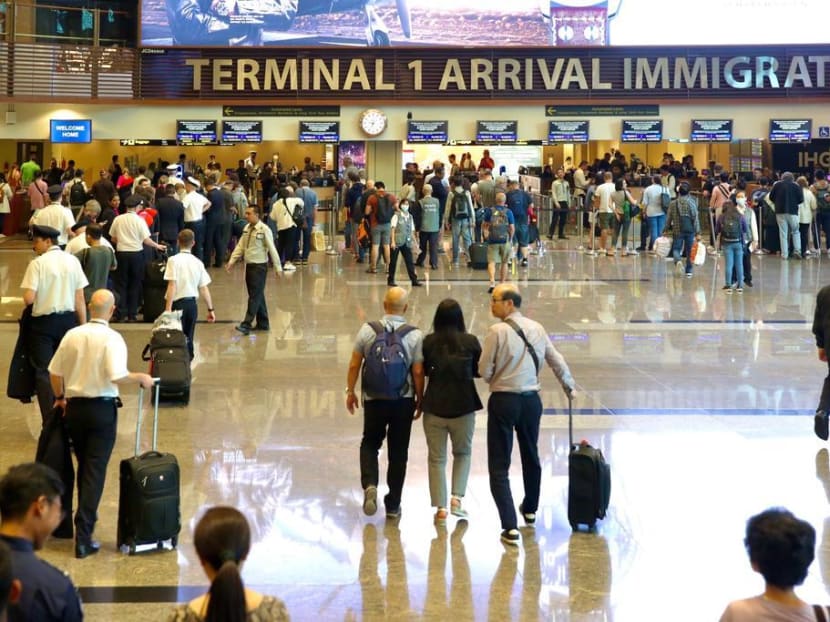Singaporeans who travel overseas after March 27 to pay full hospital rates if warded for Covid-19
SINGAPORE — Singapore residents and long term pass holders who leave Singapore from March 27 (Friday) will be charged unsubsidised rates at public hospitals if they are admitted as suspected Covid-19 patients within 14 days of returning.
SINGAPORE — Singapore residents and long term pass holders who leave Singapore from March 27 (Friday) will be charged unsubsidised rates at public hospitals if they are admitted as suspected Covid-19 patients within 14 days of returning.
Such Singaporeans will also not be able to claim from their MediShield Life or Integrated Shield Plans for these treatments at both public and private hospitals.
These were among a number of measures announced on Tuesday during a multi-ministry taskforce to address the issue of Singapore residents and long-term pass holders who are still travelling abroad despite the Government advising against it.
Speaking at the press conference, Health Minister Gan Kim Yong said that despite the Government’s travel advisories, about 1,000 Singapore residents (which comprise citizens and permanent residents) and long-term pass holders continue to travel abroad daily based on Immigration and Checkpoints Authority data.
“These individuals pose a risk to the health of fellow Singaporeans when they return,” he said.
In a statement on Tuesday, the Ministry of Health (MOH) added that any work pass holder or their dependant who leaves Singapore from Friday will also be "deprioritised" for entry approval and could see “significant delays” before they are allowed to return to the Republic if they continue to travel overseas and return infected.
THOSE RETURNING FROM UK AND US
The MOH noted that the United Kingdom and the United States account for the largest share of cases imported into Singapore so far.
“We expect more Singapore residents including a sizeable group of Singaporean students to return from these countries over the coming weeks in response to lockdown in these countries,” it said.
To prevent the potential spread of infection from these returnees to their family members, the Government is working with hotels to set up dedicated facilities where they can serve their 14-day stay-home notice (SHN).
They will be transported directly from the airport to these hotels where they will have their own room, ensuite toilet and will be provided with meals.
This new arrangement will take effect for those returning from the UK and US from 11.59pm on Wednesday.
Returnees from these countries who are currently serving out their SHN at their homes may also request to stay in these dedicated facilities, said MOH.
COMMUNITY ISOLATION FACILITY
To cope with a possible surge in cases, a Community Isolation Facility has been set up at D’Resort, an NTUC accommodation facility at Pasir Ris.
The facility, which has a capacity of 500 people and is operational, will house patients who are clinically well enough to be discharged from medical care but still test positive for Covid-19.
Currently, these patients have been isolated in Singapore hospitals, said MOH, but this has “not been an efficient use of our hospital resources as they do not generally require significant medical care”.
Once moved to the facility, these patients will continue to be isolated as they were in hospital and discharged once they test negative for Covid-19.
The facility, which is modelled after existing Government Quarantine Facilities, will be managed with a “higher baseline level of infection control by staff”, said MOH.
ENFORCING STAY-HOME NOTICES
MOH said it would be promulgating regulations under the Infectious Diseases Act to give legal force to safe-distancing measures as well as penalties for SHN breaches.
The penalty for an offence under the regulations is a fine of up to S$10,000 or imprisonment of up to six months, or both.
The Government will step up enforcement efforts against persons on SHN, said MOH, including using a combination of mobile applications, phone surveillance and house visits.
The number of officers conducting such checks will also be increased substantially.







